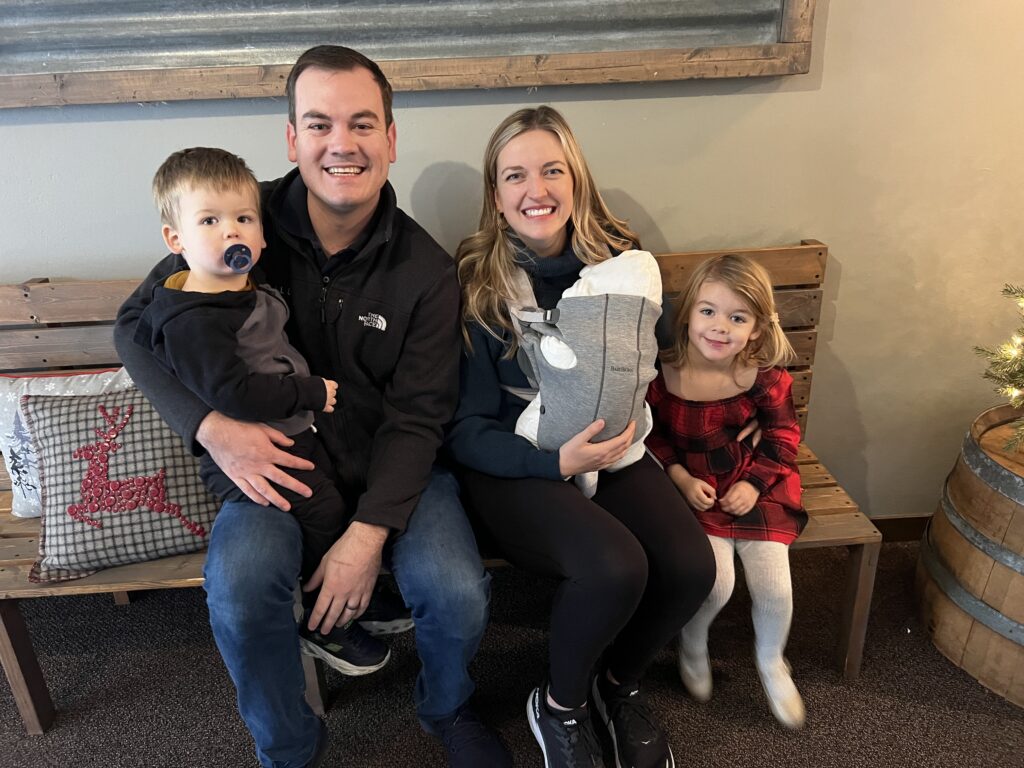Having marriage problems after baby should be expected. While you might have moments of bliss and connection when you look at the little human you’ve created together, more often then not, new marriage problems pop up after having a baby, but most couples don’t have time or energy to learn new tools.
I get it; you’re tired, you both feel like you’re doing so much, and you’re adjusting to a new and healing body, drastic and abrupt schedule changes, and you’re trying to keep a baby alive. Thankfully, there are some easy tools for managing marriage problems after baby. One of my favorite tools is one of the easiest: using scaling questions.
Scaling questions are a type of question that asks you to rate something on a scale from 1 to 10. This rating can help you clarify your thoughts, feelings, and attitudes about a particular issue. When it comes to marriage and parenting, scaling questions can help you identify areas of strength and weakness and create a plan to improve your relationship.
Why Scaling Questions?
The reason why I love scaling questions is that they are quick and clear: two things you really need when you’re navigating marriage problems after a baby. No new parent has time for something tricky.
I also find scaling questions valuable because they can be used to connect wholistically, at a macro level, or in your day-to-day life.
Using Scaling Questions To Reset Marriage Problems After A Baby
If possible, I’d recommend sitting down one evening and asking one another these questions:
- On a scale of 1 to 10, how supported do you feel by your partner in your role as a parent?
- On a scale of 1 to 10, how connected do you feel to your partner since the baby arrived?
- On a scale of 1 to 10, how well are we communicating with each other about our needs and feelings?
This is important: give your spouse the opportunity to answer the question fully, without you interrupting. It’s possible that you believe you are working harder, and it’s very possible that you are working harder in this new season of life, but part of reconnecting after having a baby is making space for the experience you are each having.
Once you’ve both answered the questions, take some time to discuss your answers. Ask each other why you rated a particular question the way you did and share any concerns or issues that come up. The goal is not to judge each other but to create a space for open and honest communication.
Based on your answers, you can then create a plan to address any areas of weakness. If you both feel disconnected, you can make an effort to spend more quality time together as a couple. If one parent is taking on the majority of responsibilities, you can redistribute or find outside help.
Using Scaling Questions For Day-To-Day Partnership
Another way you can use scaling questions is in day-to-day life. I often recommend to couples that they create a daily ritual, tied to a daily habit. This can look like checking in over breakfast, or when they return from work. Scaling questions can become a natural piece of this ritual.
For example, each day, you can ask:
- On a scale of 1 to 10, what were the last 24 hours like for you?
- On a scale of 1 to 10, how do you feel like our relationship is right now?
Answering these questions on a daily basis allows you to help one another before resentment sets in. It also creates a sense of safety, empathy, and teamwork; there will inevitably be days where you each will pick one another up and carry more weight.
In conclusion, scaling questions can be a helpful tool for couples navigating the challenges of marriage and parenting. By using these questions to identify areas of strength and weakness, you can create a plan to strengthen your relationship and support each other through this significant life transition.
If you find yourself in need of more tools like this, feel free to reach out to me for personal therapy. One of my favorite things to do is help couples in their transition to parenthood. Families thrive when your relationship thrives, and it’s an honor to help you get back in a place where you love and respect one another.


leave a comment